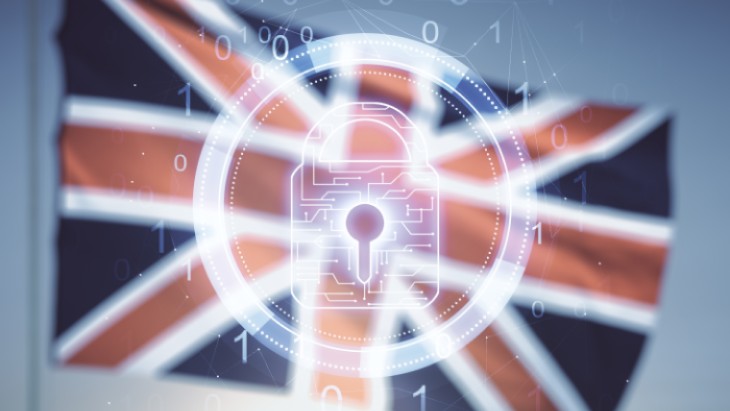
What is IPDR Logging? A Regulatory and Compliance Perspective
Dec 02, 2024
/
Kron
In the realm of telecommunications and internet services, compliance with regulatory mandates is crucial for ensuring security, transparency, and accountability. One key practice in meeting these requirements is IPDR logging, which stands for IP Detail Record logging. This process involves the collection and storage of internet session data, a critical tool for adhering to data retention laws and supporting law enforcement investigations.
In this blog, we’ll explore IPDR logging from a regulatory and compliance standpoint, delving into its significance, applications, and the global legal frameworks that mandate its use.
Understanding IPDR Logging and Its Regulatory Role
IPDR logging refers to the process of recording metadata about internet activity on a network. Unlike data that captures the actual content of communications, IPDR logs focus on metadata, including:
- Source and destination IP addresses (who is communicating and with whom)
- Session start and end times (when communication occurs)
- Ports and protocols used (what type of communication is happening)
- Volume of data transferred (how much data is being exchanged)
This metadata is invaluable for regulatory compliance, as it provides insight into network usage without compromising the actual content of communications.
Why is it Important for Compliance?
Governments around the world have enacted laws requiring telecommunications providers and ISPs to retain such metadata for a specified period. The rationale behind these requirements includes:
- Supporting law enforcement investigations into criminal activities.
- Ensuring accountability and transparency in digital communications.
- Providing evidence and records to substantiate claims in legal proceedings or court cases.
Global Regulatory Frameworks Requiring IPDR Logging
IPDR logging plays a significant role in enabling compliance with national and international regulations. While the specifics vary by country, most laws share common objectives: national security, crime prevention, and regulatory oversight. Below are key examples of how IPDR logging is mandated around the world:
European Union: Data Retention Laws
- While the EU Data Retention Directive (2006/24/EC) was invalidated in 2014, many EU member states have introduced their own data retention laws. These often require ISPs to store metadata, including IPDR-like records, for 6 to 24 months.
- For instance:
- France mandates a one-year retention period for internet traffic logs.
- Germany and Italy also enforce strict metadata retention laws tailored to anti-terrorism and security concerns.
United Kingdom: Investigatory Powers Act 2016
- Known as the “Snooper’s Charter,” this law requires ISPs to retain Internet Connection Records (ICRs) for up to 12 months. These records include information similar to IPDR, such as visited websites, IP addresses, and data transfer details.
- The law allows authorized agencies to access these records to investigate crimes, safeguard national security, and prevent terrorism.
United States: CALEA and Voluntary Retention
- While the U.S. lacks a comprehensive mandatory data retention law, under the Communications Assistance for Law Enforcement Act (CALEA), ISPs must provide metadata upon request.
- Many U.S. ISPs voluntarily retain IPDR data to assist in investigations, as required by agencies like the FBI or Homeland Security.
Australia: Data Retention Act 2015
- Australia mandates ISPs to retain metadata, including IP addresses and session times, for two years. This metadata supports law enforcement and intelligence agencies in addressing terrorism, cybercrime, and other serious offenses.
Türkiye: Law No. 5651
- In Türkiye, ISPs must retain internet traffic logs for at least one year under Law No. 5651. These logs must include metadata like IP addresses, connection durations, and data volumes. Regulatory oversight is provided by the Information and Communication Technologies Authority (BTK), which ensures compliance with these retention requirements.
India: Unified Licensing Requirements
- ISPs in India are required to retain metadata, including connection logs and IP addresses, for at least one year, as outlined in the Unified Licensing Agreement and IT Act. This data must be available for investigations into cybercrime and national security issues.
Russia: Yarovaya Law
- Russia’s Yarovaya Law requires service providers to retain both metadata and communication content for varying periods. Metadata, including IP addresses and session data, must be stored for at least one year to support state surveillance and law enforcement.
Conclusion
IPDR logging is a critical tool for meeting regulatory requirements and supporting the operational needs of telecommunications providers and ISPs. By capturing detailed metadata about internet traffic, IPDR logs play a vital role in national security, criminal investigations, and maintaining transparency in digital communications.
As internet traffic grows and regulatory requirements evolve, IPDR logging will continue to shape the telecommunications landscape. Providers that adopt innovative technologies to optimize computing and storage resources will be better positioned to meet these demands while maintaining high operational efficiency and compliance standards.
For organizations navigating these complexities, Kron IPDR Logging platform provides a comprehensive solution tailored to meet regulatory requirements with precision and efficiency.
Highlights
Other Blogs




















